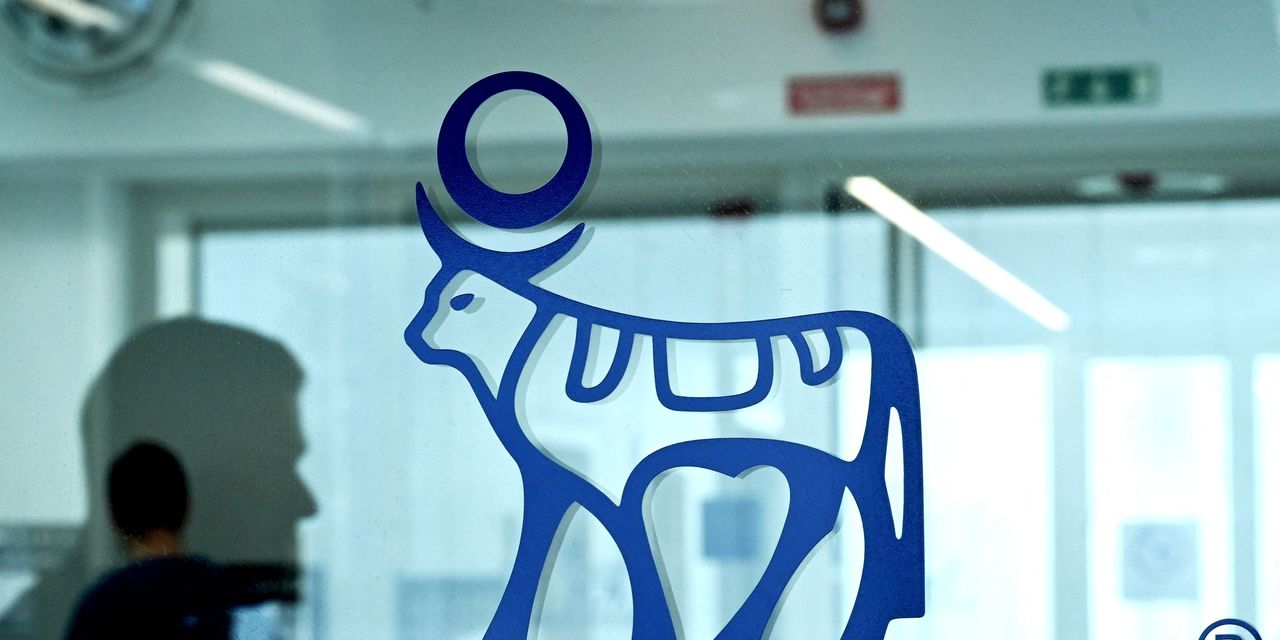It’s Novo Nordisk’s moment to shine, but among healthcare stocks, some overlooked players are stealing the spotlight.
The Danish drugmaker on Saturday released some long-awaited data on the cardiovascular benefits of its weight-loss drug Wegovy — results that could contribute to broader insurance coverage of the popular diabetes and obesity medications broadly categorized as GLP-1 drugs, many analysts say.
In Monday’s trading, however, the stocks that benefited the most were generally those of medical-device makers and other diabetes-related companies that have previously suffered some of the biggest hits from the growing popularity of GLP-1 drugs. Shares of continuous-glucose-monitoring company DexCom Inc.
DXCM,
insulin-pump maker Insulet Corp.
PODD,
and dialysis company DaVita Inc.
DVA,
were up roughly 4% to 7% midday on Monday, while Novo Nordisk’s American depositary receipts
NVO,
were flat.
In the Novo Nordisk study, which involved people who did not have a history of diabetes but previously had major cardiovascular events like heart attack or stroke, the rates of risk reduction and progression to prediabetes and diabetes were in line with expectations based on previously reported data on GLP-1 drugs, Leerink Partners analysts wrote in a report Monday. That outcome is favorable for Insulet, DexCom, Intuitive Surgical Inc.
ISRG,
and other stocks that have been “disproportionately punished” based on GLP-1 concerns, the analysts wrote.
What’s more, the analysts wrote, reduction in diabetes risk “does not change the fact that discontinuation rates remain high in a real-world setting” for patients taking GLP-1 drugs, “and we do not expect patients who fall off therapy to experience similar benefits.” In the Novo Nordisk study, about 17% of patients taking Wegovy had an adverse event that caused them to stop taking the drug — mostly due to gastrointestinal problems — compared with about 8% of those on placebo.
The data should be viewed as “modestly de-risking” the medical-technology stocks that have suffered from GLP-1 fears in recent months, Raymond James analysts said in a report Monday.
For drugmakers, however, analysts said the results were mixed. While the data could support broader insurance coverage of GLP-1 drugs, analysts said, Medicare is still prohibited by law from covering prescription drugs for weight loss. The study could increase pressure on Medicare to cover Wegovy for treatment of cardiovascular disease, regardless of whether any legislative change lifts the restriction on obesity-drug coverage, Citi analysts wrote in a report Monday.
For other types of insurance, the study could make it more difficult for payers to create arbitrary coverage hurdles, such as only covering the drug for patients above a certain body-mass index, because weight loss did not appear to be the sole driver of the cardiovascular benefits seen in the results, Leerink Partners analysts wrote in a report Sunday.
The study also opens the door for Eli Lilly’s obesity drug Zepbound, which was approved last week by the U.S. Food and Drug Administration, to improve on Wegovy’s results, analysts said. In clinical trials, Zepbound has resulted in even greater weight loss than Wegovy. The Wegovy study “bodes extremely well” for Zepbound, BMO Capital Markets analysts wrote in a report Sunday, “given the superior weight loss seen with tirzepatide,” the active ingredient in Zepbound.
Eli Lilly shares were up about 2% midday Monday and have gained 67% in the year to date. Novo Nordisk’s ADR is up about 49% in the year to date, while the S&P 500
SPX
has gained 15%.
Read the full article here





